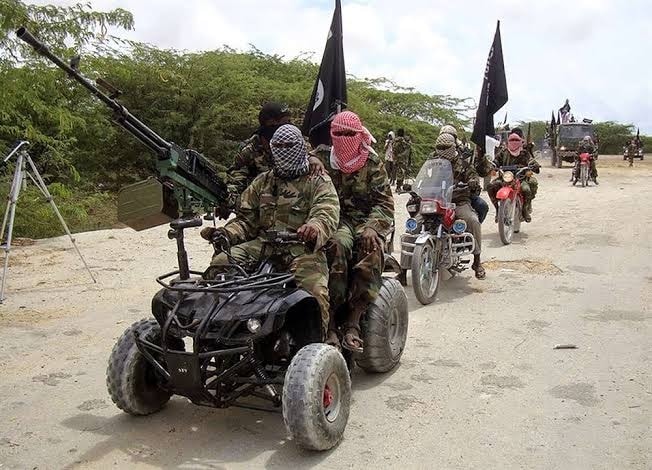Highway Kidnappings in Nigeria: A Nation Held Hostage by Armed BanditsNigeria’s highways, once bustling with commerce and travel, have become death traps.
Armed gangs now dominate major roads, ambushing vehicles, kidnapping travelers, and demanding exorbitant ransoms.
From the notorious Abuja-Kaduna expressway to the Lagos-Ibadan corridor, no route is entirely safe.
This epidemic of highway kidnappings has paralyzed transportation, crippled businesses, and instilled fear in millions of Nigerians.
This article shall examine the alarming rise of highway kidnappings in Nigeria, exploring the causes, hotspots, economic impact, government responses, and potential solutions to this growing crisis.
1: The Rise of Highway Kidnappings in Nigeria
1.1 How Highway Kidnappings Became a National Crisis
Kidnapping for ransom is not new in Nigeria, but the surge in highway abductions has reached unprecedented levels.
Criminal gangs, often armed with AK-47s and sophisticated weapons, set up roadblocks or ambush vehicles, usually targeting:
a. Commuters (especially those in luxury cars or buses).
– Business travelers (seen as high-value targets).
– Foreign expatriates (who fetch higher ransoms).
1.2 Key Hotspots for Highway Kidnappings Some of the most dangerous highways include:
– Abuja-Kaduna Expressway : Dubbed “Nigeria’s most dangerous road,” with weekly kidnappings.
– Lagos-Ibadan Expressway: Increasing attacks near the Ogun-Oyo border.
– Benin-Okene-Abuja Road: Bandits operate freely in the Kogi forests.
– Enugu-Port Harcourt Road: Rising cases in the Southeast.
1.3 The Modus Operandi of Kidnappers
– Roadblock Ambushes: Criminals block roads with logs or broken-down vehicles.
– Shoot-and-Snatch : They open fire on vehicles, forcing them to stop.
– Inside Collaborators: Some drivers or passengers tip off kidnappers.
– Forest Hideouts: Victims are taken into remote forests where negotiations begin.
2: Why Highway Kidnappings Are Thriving
2.1 Weak Security Presence on Highways
Despite government claims of increased patrols, many highways remain poorly secured due to:
– Inadequate police and military coverage.
– Corruption among security agents (some allegedly tip off kidnappers).
– Lack of surveillance technology (drones, CCTV).
2.2 Economic Hardship Driving Crime
Unemployment and poverty have pushed many into criminality.
Kidnapping has become a lucrative business where:
– Ransoms range from ₦5 million to ₦100 million per victim.
– Even low-level gang members earn more than minimum wage.
2.3 Porous Forests and Ungoverned Spaces.
Bandits exploit Nigeria’s vast, ungoverned forests (such as Rugu Forest and Birnin Gwari) to hide victims and evade capture by the authorities.
2.4 Ineffective Government Response
– Delayed rescue operations (some victims spend months in captivity).
– No strict punishment for convicted kidnappers.
– Failed amnesty programs (bandits return to crime after collecting government payouts).
3: The Human and Economic Toll of Highway Kidnappings
3.1 Psychological Trauma on Victims
Freed kidnap survivors report:
– Torture, starvation, and sexual abuse.
– Permanent trauma and PTSD.
– Families going bankrupt to pay ransoms.
3.2 Economic Consequences
– Reduced interstate travel : Businesses suffer as people avoid highways.
– Increased transportation costs : Armed escorts and alternative routes raise fares.
– Declining tourism and investments : Foreigners fear visiting Nigeria.
3.3 The Ransom Economy
An estimated ₦10 billion is paid in ransoms annually, fueling:
-More kidnappings (successful payments encourage repeat crimes).
– Weapons proliferation (kidnappers buy more arms).
– Local collusion (some villagers aid kidnappers for a share of ransoms).
4: Government and Security Agencies’ Response
4.1 Military and Police Operations
– Operation Puff Adder : Launched in 2019 but with limited success.
– Increased highway patrols : Yet attacks persist due to insider leaks.
– Special anti-kidnapping units:Often underfunded and outgunned.
4.2 State Government Measures
Some states have taken independent actions:
– Zamfara’s controversial peace deals (which failed).
– Kaduna’s rail line alternative (now also targeted).
– Lagos’ use of drones (still experimental).
4.3 Why These Efforts Are Failing
– Corruption within security agencies.
– Lack of intelligence-sharing.
– Insufficient political will to tackle root causes.
5: How Nigerians Are Coping
5.1 Self-Protection Measures
– Traveling in convoys with armed escorts.
– Avoiding night travel.
– Using GPS tracking devices.
5.2 Vigilante Groups Taking Matters Into Their Hands
Some communities have formed local militias, but this has led to:
– Extrajudicial killings of suspects.
– Clashes with security forces.
5.3 The Rise of Kidnapping Insurance
Wealthy Nigerians now purchase Kdnap and ransom (K&R) insurance, as well as, Private security details.
6: Solutions to End Highway Kidnappings
6.1 Immediate Security Measures Needed
– Deployment of military-grade surveillance (drones, CCTV)
– Better coordination between police and local vigilantes.
– Harsher penalties for convicted kidnappers (including death sentences).
6.2 Long-Term Socioeconomic Solutions
– Job creation programs to reduce youth criminality.
– Education and deradicalization initiatives
– Strengthening rural policing and community trust.
6.3. The Role of Technology- AI-powered security monitoring on highways.
– Emergency alert systems for travelers.
-Blockchain tracking of ransom payments to disrupt gangs’ funding.
In summary, can Nigeria Reclaim Its Highways?
Highway kidnappings have turned Nigeria into a nation under siege. Without decisive action, the crisis will worsen, further crippling the economy and eroding public trust.
The government must move beyond empty promises and implement real security reforms, economic interventions, and community-based policing to end this menace.
For now, Nigerians continue to pray before every journey hoping they won’t be the next victims. Some commuters have resorted to using the expensive air transportation, as they’ll always quote that “flight tickets is always cheaper than ransom”.
The question remains this, “ Will the government act before it’s too late?”
